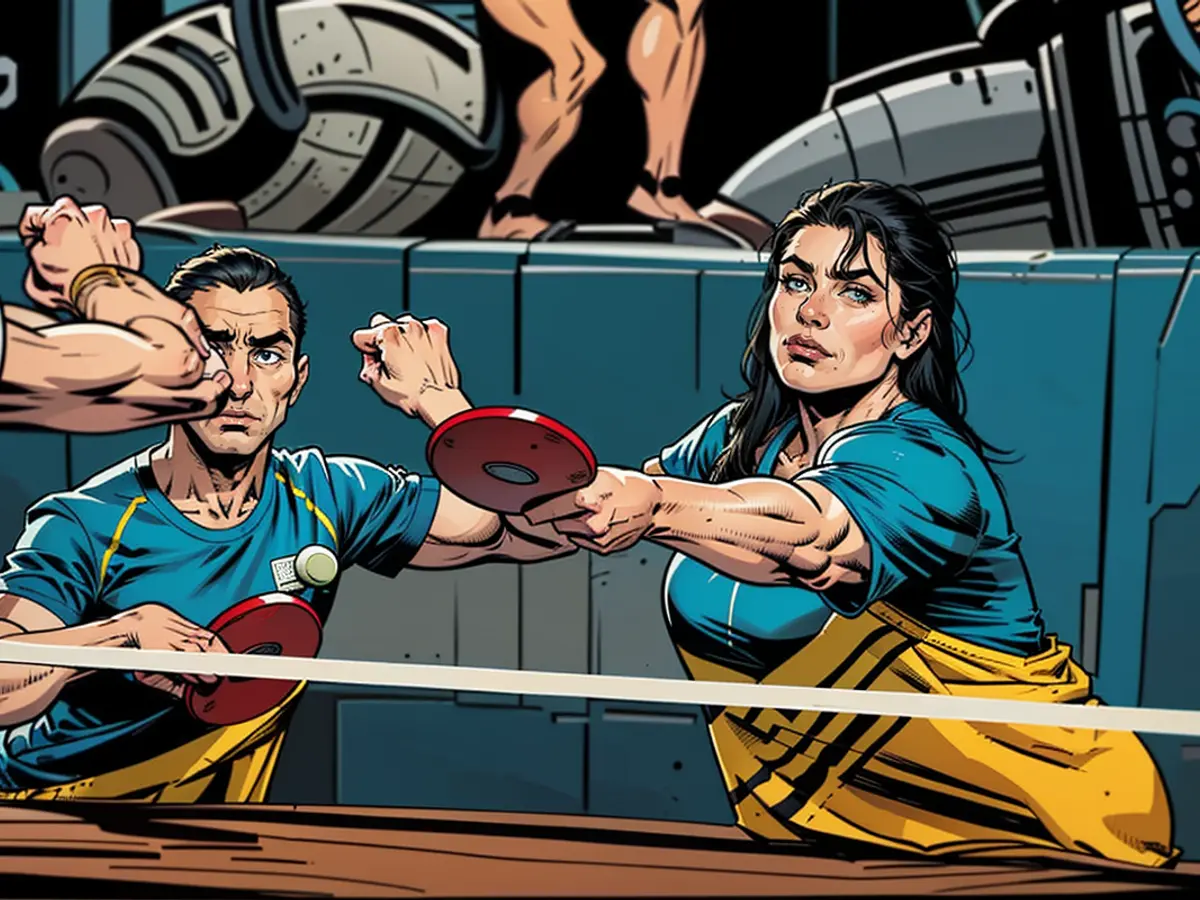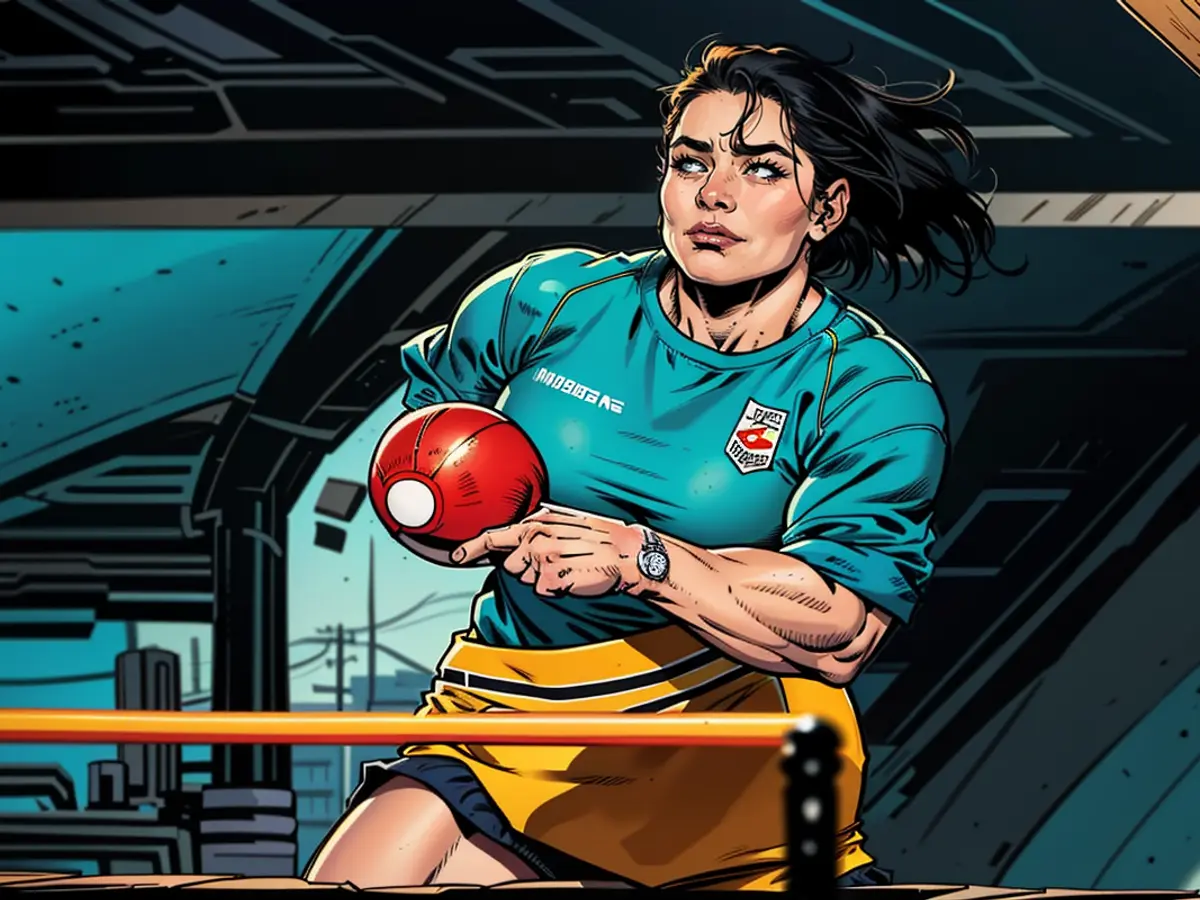One-armed table tennis player enthusiastic at the Olympics
Brazilian table tennis player Bruna Alexandre has only one arm. She is among the top favorites at the Paralympics. But that's not enough for her. She wants to prove herself at the Olympics too - and she's doing just that. There's an exception in the rules for her.
Playing on the far left was the German team with veteran Timo Boll, right next to them the French team with new table tennis hero Felix Lebrun. But a significant portion of the attention in the Sud 4 arena in Paris was on Bruna Alexandre, a Brazilian ranked 182nd in the world. The 29-year-old had no medal hopes in Paris, at least not at the Olympics. What sets Alexandre apart from Boll or Lebrun is that she has only one arm. And before her start at the Paralympics, she was on a mission among the "non-disabled".
"I'm very happy to represent all people with disabilities here and show that anything is possible," said Alexandre. What was possible: In her Olympic debut, she beat world number 42 Lee Eun Hye of South Korea 3-2 in the team event, exciting the crowd. Even though Brazil was eliminated and her Olympics are over, she is the best, albeit rare, example of lived inclusion in Olympic sports.
Alexandre, who lost her arm as a baby due to a thrombosis, has been one of the best para-table tennis players for years, winning two bronze medals in Rio in 2016 and silver in Tokyo in 2021. She is also among the favorites at the Paris Paralympics (starting August 28). But the ambitious left-hander wanted more - Alexandre wants to play against the best in the world, just like she did at the World Championships in Busan among the non-disabled professionals.
"I hope that one day it will be completely normal"
There have been several athletes who competed at both the Olympics and Paralympics. For example, discus Olympic champion Ilke Wyludda, who started a second career after a below-knee amputation. However, it's much rarer for an athlete to do so in the same year. The first to achieve this was Polish table tennis player Natalia Partyka, who did it four times, from 2008 to 2021. Four other women and one man have also achieved "paraolympic" honors in this way.
"Partyka inspired me, she started this chapter in table tennis history," says Alexandre. She emphasizes that she doesn't feel limited by her disability. There's just one exception for her: Alexandre is allowed to lift the ball with her racket before serving - usually a rule violation. She won't win an Olympic medal, like the five "double starters" before her. But that's not important, because there's her mission: "I hope that one day it will be completely normal for someone with a disability to play against someone with two arms."
She herself said recently that she lives her life without feeling limited: "In many things, I don't even notice that I have a disability. I live my life just like anyone else with two arms. I'm not limited, I can do anything I want."
In the Olympic Games 2024, Bruna Alexandre aims to continue her impressive run, following her Silver medal at Tokyo 2021. Despite being a favorite in the Paralympics starting August 28, Alexandre has set her sights on competing against the best in the world, just as she did at the World Championships among non-disabled professionals.
Despite her success in para-table tennis, Alexandre dreams of a future where it's completely normal for an athlete with a disability to compete against someone with two arms, echoing the achievements of athletes like Natalia Partyka who have competed in both the Olympics and Paralympics.









